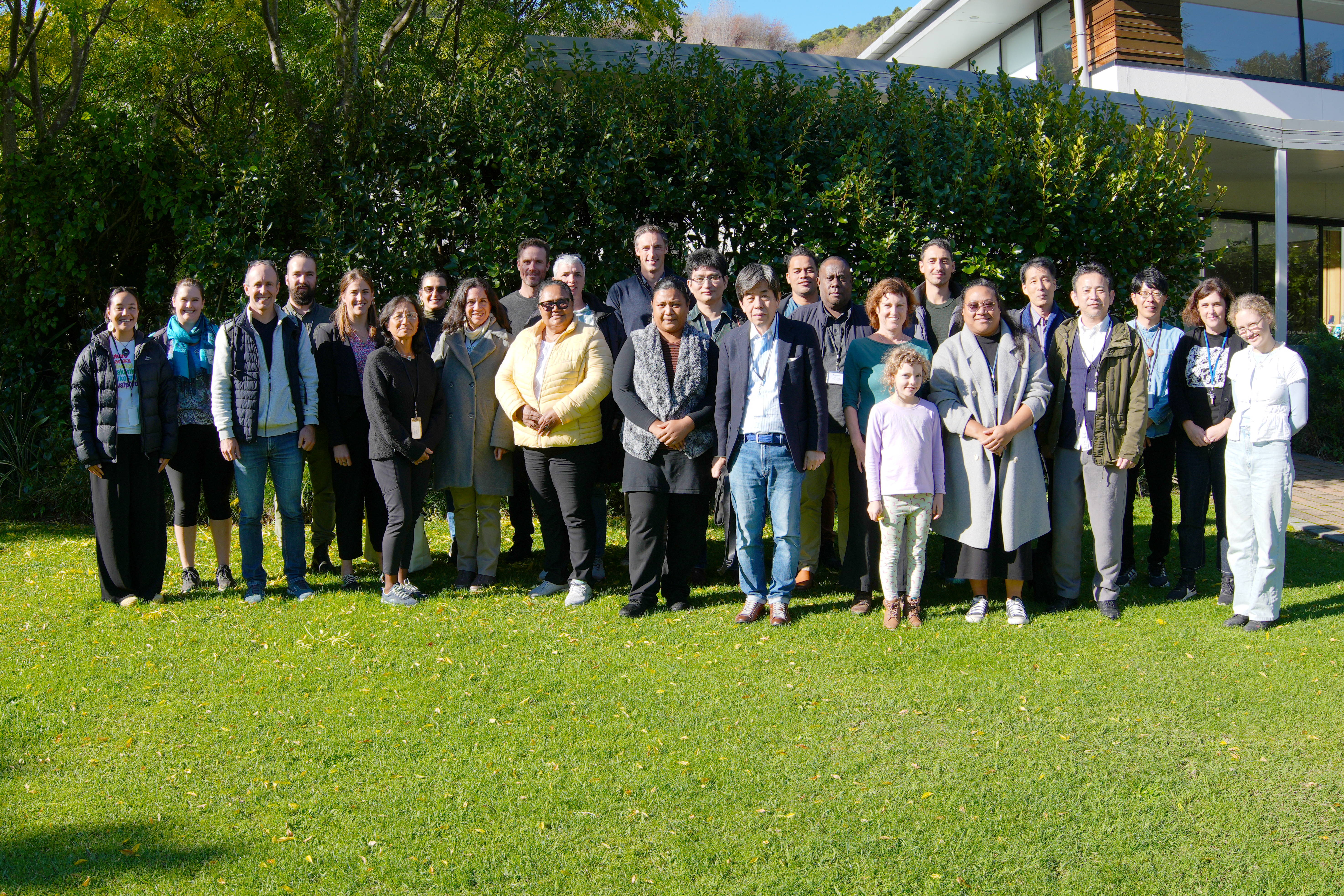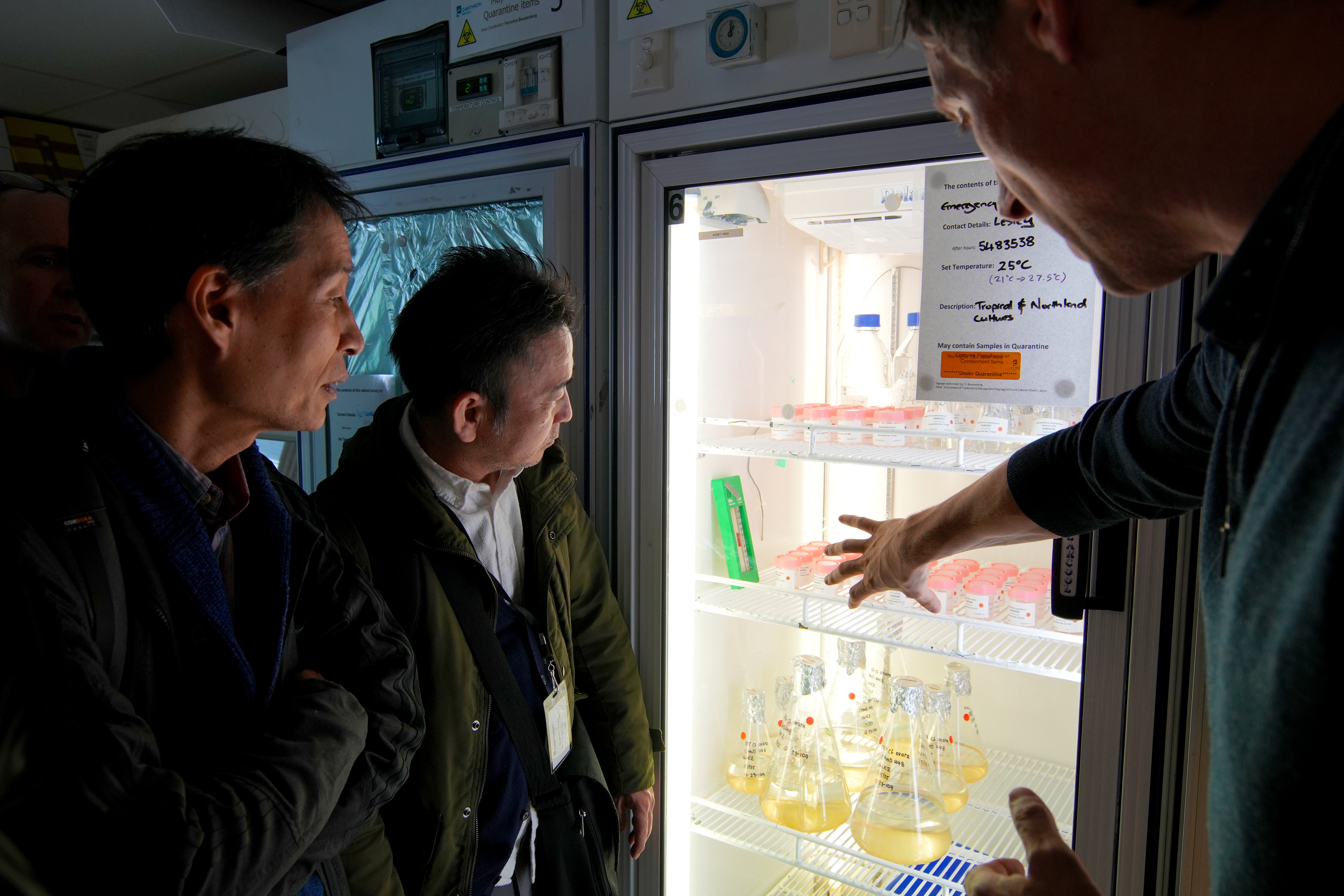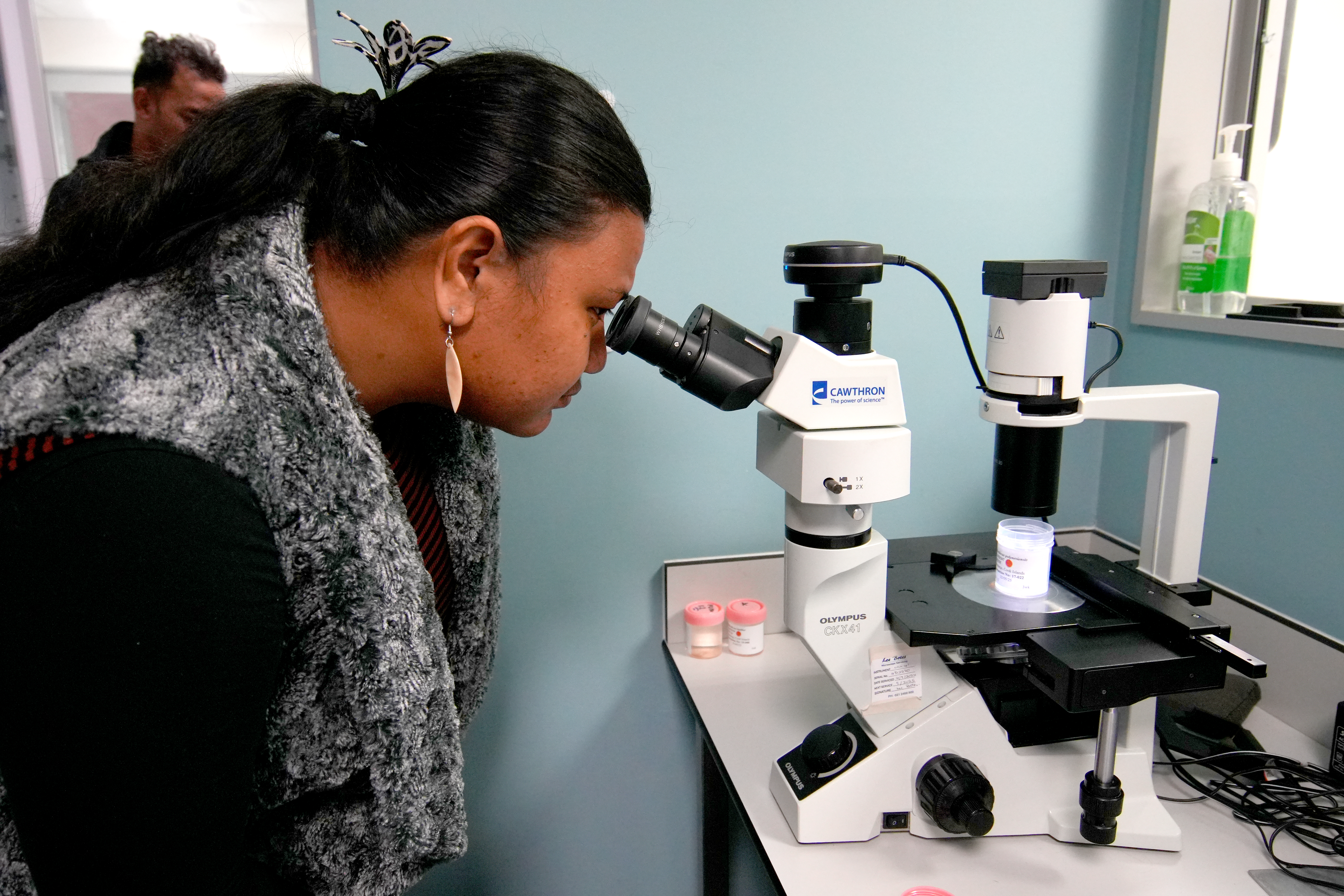Cawthron Brings International Experts Together in Whakatū/Nelson to Tackle Ciguatera Poisoning in the Pacific
23 May 2025
Leading scientists, public health officials and marine researchers from across the Pacific have gathered in Nelson this week for the International Symposium on Ciguatera Poisoning, hosted by Cawthron Institute and funded by the French Embassy in New Zealand via a Fonds Pacifique project with partners from the Institut Louis Malardé from Tahiti
Running from 19–22 May 2025, the symposium brings together representatives from more than a dozen countries and territories, including New Zealand, French Polynesia, New Caledonia, Fiji, Tonga, Kiribati, Wallis and Futuna, Vanuatu, the Cook Islands, Australia and Japan. The event is focused on deepening global understanding of Ciguatera Poisoning (CP) – a foodborne illness caused by eating reef fish and other organisms contaminated with ciguatoxins – and advancing coordinated strategies to monitor, predict and mitigate its impacts.
“Ciguatera is a growing threat to food security, livelihoods, and public health in Pacific communities, particularly as ocean temperatures rise and harmful algal blooms become more widespread,” said Dr Kirsty Smith, Manager of Molecular and Algal Ecology at Cawthron.
“This symposium is a crucial opportunity to share science, tools and traditional knowledge across borders to improve detection, prevention and response, and as a leading algal research organisation in Aotearoa and the Pacific, Cawthron is privileged to facilitate this event.”
The symposium features sessions on surveillance systems, ecological risk, toxin detection methods, and the effects of climate change on harmful algal species like Gambierdiscus, the microalgae responsible for producing ciguatoxins.
Dr Smith and Dr Laura Biessy, Team Leader of Cawthron’s Microalgae team, co-chaired sessions exploring the state of ciguatera in Pacific nations and future directions for research.
“We’re proud to be hosting this symposium here in Nelson, and to showcase the research leadership and specialist facilities Aotearoa New Zealand contributes to this global issue,” said Dr Biessy.
“By connecting experts across science, policy, and communities, we can better protect people and ecosystems from the impacts of ciguatera.”
The programme includes field visits, lab tours, and collaborative workshops on future funding and joint research opportunities. Participating institutions include universities, health ministries, and marine science agencies, with support from Pacific regional partners.
The symposium wraps up with a day of collaboration-focused sessions at Cawthron’s Aquaculture Park, where participants will define regional priorities and map out a shared path forward.


Image: From left – Prof-Masao Adachi Kochi University Japan Dr-Naomasa Oshiro National-Institute of Health Sciences Japan Dr Sam Murray Cawthron Institute.

Image: Taarai Abere, Ministry of Fisheries & Marine Resources Development, Kiribati